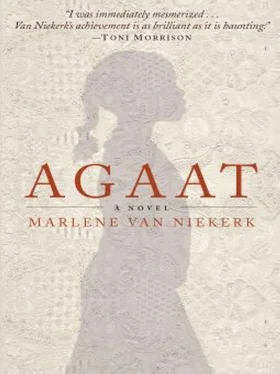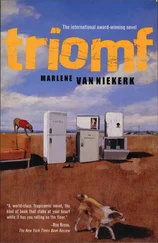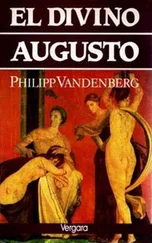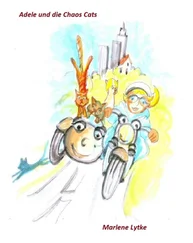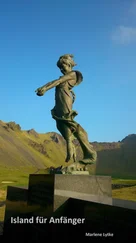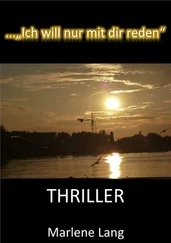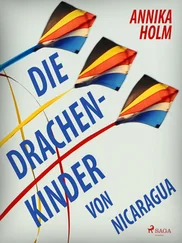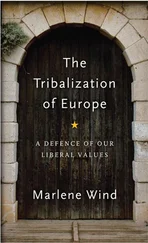Now Agaat has arranged it for me in mirrors, a vision. How shall I know whether she reacted to my request or if it was mere chance?
Or could she have been planning it for a long time? First the emptying out of my room, the drawn curtains and now the light, the restoration of colour and objects? So that I, as I am drained of myself, can fill up with what is outside myself, as the poet says? So that something can start floundering upstream in the run-off? You never know with Agaat. She is witched. Sometimes I think she’s playing games with herself, and I’m a mere excuse for her inventions.
In the beginning she arranged fresh flowers in the vases every day, as she knew I liked it, but then Leroux apparently said we should beware of dust and pollen and insects.
That was Agaat’s story.
Perhaps she’s sorry now, wants to make up for it now.
As always at this time of the day shadows are playing on the wall next to my bed, but now there are lively stipples of light, points of blue, a general tint of agapanthus cast on it by the mirror.
A multiplied garden.
One visible through the window, one in the mirror, one on the wall.
How long could it have taken her? How many times of walking to and fro, softly so as not to wake me?
Perhaps she flew, changed herself into a dragonfly. Or a wasp. Landed on my pillow, her head in line with mine, to see through my eyes, and then back to adjust the angle, the angle of the dressing table, the angle of the three panels in relation to me, to one another, to the cornflowers, to fit everything together. One degree to this side or that side could lose the hydrangeas, could include a chunk of brown stoep wall instead of a bed full of blue flowers.
And then there are still the maps, Agaat, what must I do to get them? Heaven and earth it would seem you would move in order to have me buried in a cheerful and contented state. You’ll see to it that I’m not left here impaled like a grasshopper on a thorn.
Poor Jak. What makes me think of him now?
Perhaps he’s wandering around restlessly. Perhaps he’s approaching now through the wattles to see what’s become of me. For him it was all so sudden. One two three, I’m coming! Premature! No time for second thoughts. His mouth was gaping with it, his eyes as big as saucers. Good Lord, now I have an urge to laugh! Our father who art in heaven, that I want for breath to laugh! Earlier Leroux thought it was one of the symptoms of my bulbar paralysis, these uncontrolled fits of laughter of mine, but they were always about Jak. It was always about that trajectory. What goes up must come down, there’s no escaping that. But the curve of the arc differs from case to case. As I got progressively sicker, I started wondering more and more whether it would be better to go like him, and then I always started laughing.
Wretched Jak, Hollywood to the last gasp, or perhaps not Hollywood, at most a Leon Schuster farce.
Two days after his death I said to Agaat: Clear out, pack all the papers in boxes so that the executors can come and collect them, carry everything else out into the back here, everything so that we can sort it. I didn’t want to see anything more of him. The car I had towed away immediately without further ado, I didn’t want to have to stare at it every time I drove out.
Ai, the baas, the baas, Agaat said with a straight face when she came in with the piles of photos and asked what she should do with them all.
Throw away, I said, take them all to be burnt, everything, out, away, I have no use for them. Just roll up the maps nicely for me.
About the racquets and the training-bench and the weights and the abdomen-strengthener and the mountaineering ropes and the crash-helmets and the knee-guards and the calf-vibrator and the lumbar-massage wheels and the electrical foot-palpitator I wondered, a sale I thought, an auction, but I didn’t feel up to the faces of the people. I had it all carried to the scrap-iron heap behind the implements shed. From there, I knew, it would in time be drawn, with the rusted ploughshares and old pieces of corrugated iron, into the recycling vortices of the farm.
That was in 1985. For years after that I would see the children on the farm walking around with the medals around their necks or playing in the dust with the silver trophies. That’s all they retained of Jak, his toys. And the adults who experienced it, to this day I sometimes hear them talk amongst themselves about the spectacle. The master of Grootmoedersdrift, shrike-spiked like a beetle.
Jak’s law books and action novels, his piles of magazines and photo-books full of sports heroes, catalogues of sports cars and expedition diaries of mountaineers and sunglassed adventurers in the Alps and the Sahara and the Amazon and the South Pole I donated to the town library. I immediately regretted doing it. The little librarians gazed wide-eyed at the material, as if they wanted to ask how I’d handled all that virile energy. As if they wondered how a mouse-face like me could have kept up with all the grandiose flights of fancy of my Camel Man.
But that one could never try to explain to the Swellendam town librarian. And also not to the chairlady of the Women’s Agricultural Union. Her I didn’t even warn that a mirror was imminent, a wall-sized mirror that had covered one whole side of Jak’s office. I had its panels unscrewed and packed and delivered to Dot Stander’s house with the message that it might be just the thing for fitting out the hall where the annual flower show was held. Forget-me-not, I thought, I’d often gone myself to clean the mirror there, the sweat-spatterings and the other splotches, I didn’t want the servants to see them.
Only the maps I kept, the old map of conveyance, the one that I’d found amongst my heirlooms after Ma’s death, with the little painted pictures of all the special places on the farm. That map was the most original of the collection. Then there was the old transfer-duty map with the boundaries and beacons. And the water map on which the rivers and the underground veins of water, the boreholes and watering places and the fountains were shown, and later the surveyor’s map when the irrigation scheme from the Theewaterskloof and the Duivenhoks was laid on. And the topographical map with the fall of all the slopes marked on it, the contour lines, the heights above sea level written on every numbered hill and mountain slope. Jak later had the rest requisitioned and ordered from the divisional council, district maps with all the other farms in the vicinity. On these you could see that Grootmoedersdrift was the biggest farm in the area and had the best soil and commanded the best grootbos, fynbos and the best water catchment area. The big soil composition map I’d had compiled by Agricultural Technical Services with, incorporated on it, the photos of the vertical sections showing all the soil types of Grootmoedersdrift, the red sand and the yellow sand on brittle stone, the clay loam and the sandy loam and the riverine turf. Then there was also the whole of South Africa, and a world map, Jakkie’s school maps on which he and his father drew with compasses and calculations the exact proportions and location of Grootmoedersdrift darted with dovetailed arrows.
Roll them all up together, tie them with string, I said to Agaat, and put them in the sideboard with the photo albums. They belong with our records.
It can’t be long now before she remembers it.
The garden hangs suspended, shimmering, in the mirror, a blue cradle, a nest dandled in the afternoon light. I hear a rustling. In the mirror I see a veil of mist irrigation slowly precipitating over the flowerbeds. The leaves scintillate, the stems start bending as the flower-heads grow heavier, my garden in all its glory.
The back door opens. Quarter past five. Agaat has been to collect the eggs before the skunks can carry them off. I can hear from her footsteps that she’s carrying a precious cargo, the round-bellied basket with straw in the bottom. I can imagine how it was. Grope-grope under the puffed up bibs of the lay-away chickens. Softly clucking the tip of the tongue against the roof of the mouth, so that they shouldn’t take fright, the close watching of the hen, her austere yellow-rimmed bead-eye, because she can be vicious and peck the hand that’s pilfering her eggs. Amongst the prickly-pear trees Agaat would have gone to look, behind the chicken run, under the pomegranate bushes, in the quince avenue, next to the old orchard. All the lay-away places she would have traced.
Читать дальше
